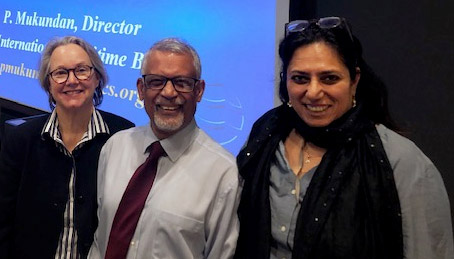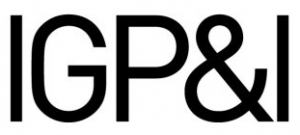
Each week, the ICC International Maritime Bureau verifies thousands of bills of lading primarily for banks and their statistics indicate that 90% of all suspicious bills of lading are issued by NVOCCs.
Published 11 September 2019
Our Insight guest author is Pottengal (Muku) Mukundan, Director of the ICC International Maritime Bureau (IMB) and Director/CEO of its holding body ICC Commercial Crime Services, a specialised division of the International Chamber of Commerce. The IMB acts as a focal point for the industry in respect of trade fraud and believes that the prompt dissemination of relevant information is key to successful prevention and control. It has amongst its members many of the world’s largest banks, insurance companies, shipping companies and traders. We thank Muku for his introduction to the IMB Register – a business centered solution to decrease the incidence of fraudulent bills of lading.
1. The problem
The IMB’s own records indicate that Non Vessel Owning Common Carriers (NVOCCs) are the issuers of over 90 per cent of all suspectbills of lading identified in its database. Suspect bills of lading are those which have false content including the wrong vessel, dates, description of cargoes, container numbers, quantities or parties. They are presented to banks in order to commit fraud, money laundering, illegal capital flight and sanctions breaches.
For the purposes of the IMB NVOCC Register, NVOCCs include charterers who issue bills of lading.
It is self-evident that the NVOCC bill of lading should reflect the terms authorised by the actual carrier.
There are many NVOCCswho operate to a very high standard. But there are a large number of NVOCCs who operate unregulated with no meaningful standards of trade knowledge or care.
The result has been that bills of lading issued by them and financed by banks pose a key fraud and money laundering risk for the banks and other stakeholders in a trade transaction.
2. The objective
The objective of the Register is to encourage a greater degree of accountability upon the NVOCCs. It is intended to increase awareness of the critical role played by the bill of lading in the trading chain and how it is relied upon by other stakeholders such as cargo owners, shipowners, banks and customs authorities. It highlights the fraud risk for NVOCCsand the importance of ensuring that the information they insert into the bill of lading is accurate and reflects the relevant information from the Master bill of lading or instructions issued by the actual carrier.
3. Key features of the IMB NVOCC Register
a) The Register will be open to all NVOCCs around the world.
b) Signing up to the Register requires the NVOCC to adopt the Code of Conduct set out in the Register.
c) NVOCCs are required to provide their full contact details including physical addresses and the names of two Directors (Designated Persons) who assume responsibility for the NVOCCfollowing the Code of Conduct and to respond to queries from the IMB regarding bills of lading issued by them.
d) The Code of Conduct sets out a minimum standard of practice by the NVOCC in the issue and processing of bills of lading. The Code of Conduct will also require the NVOCC to promptly answer questions from the IMB regarding the bill of lading.
e) The NVOCC seeking registration with the Register will be required to sign this Code of Conduct, valid for a year.
f) The NVOCC is required to maintain key documents relating to the NVOCC bill of lading issued by them for a period of three years.
g) The identity of all registered NVOCCs will be displayed on a dedicated website set up by the IMB available to the banks. This website will not have information on the Designated Persons.
g) If the NVOCC is unable to satisfactorily explain a query regarding a bill of lading issued by them or there is evidence a bill of lading issued by them contains false information, it will be recorded as a “strike” in the IMB database against them. Two such “strikes” within a year will risk them being removed from the Register unless they can show that key staff have successfully gone through the on-line NVOCC Training course available at the ICC Academy and they have put practices in place within their organisation to ensure these errors are not repeated.
4. Conclusions
This is a business solution to a business problem, i.e creating an environment where the NVOCC sees it in their interest, without regulatory coercion, to comply with acceptable trade practice. As the Register gets established and banks and stakeholders recognise the value it brings, the NVOCCs will want to be on the Register to attract business and for their documents to have credibility with others in the trading and shipping chain.

Insight Muku IMB
Kim Jefferies, Insight Editor, Gard, Pottengal (Muku) Mukundan, IMB and Monica Kohli, Senior Lawyer, Gard
Related Articles

When an irresistible force meets an immovable object



